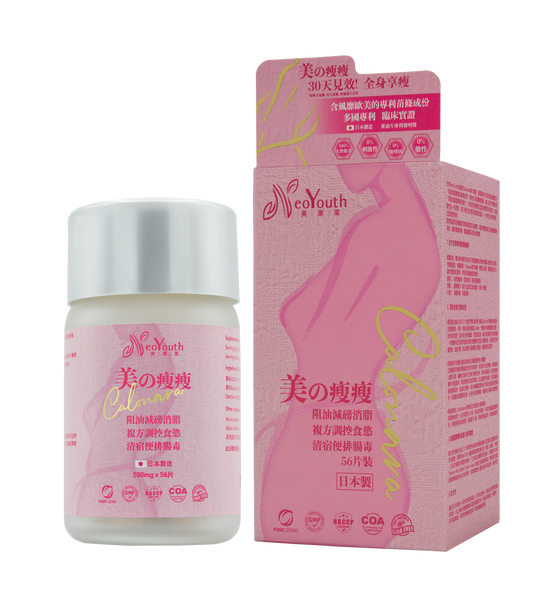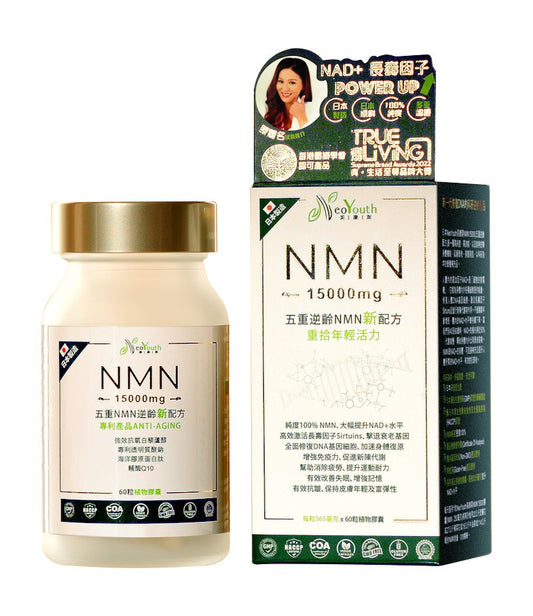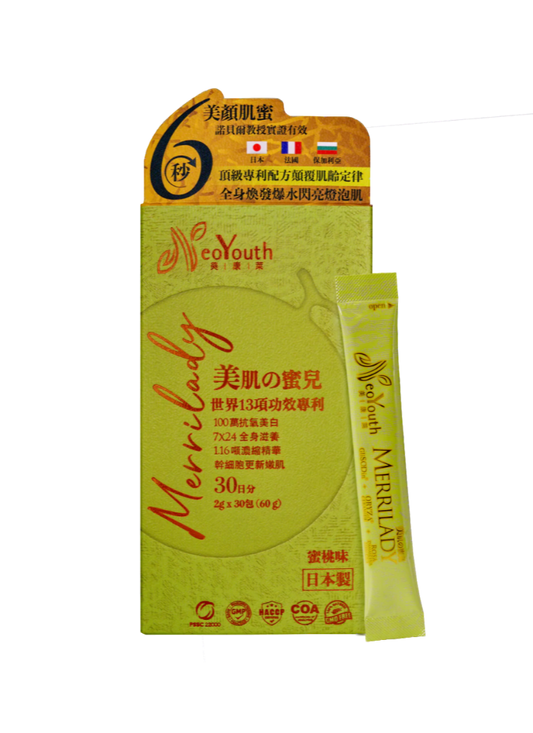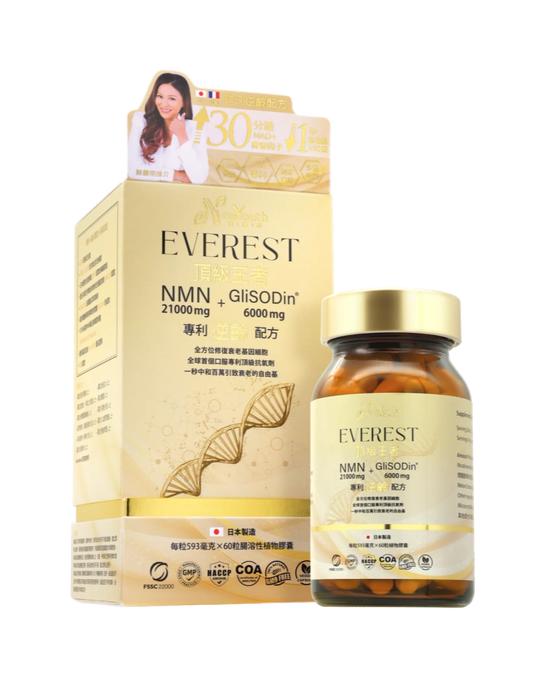Menopause is a turning point in a woman's life. With hormonal changes, various discomforts can occur, among which severe insomnia is a common problem, impacting quality of life and health. So, why does menopausal insomnia occur? How long does it last? This article will guide you through the signs, causes, and treatments of menopausal insomnia, and help you choose suitable health supplements to help you smoothly navigate the challenges of menopausal insomnia.
Understanding Menopause
Menopause typically begins 4-7 years before a woman's last menstrual period and can last for several years. During menopause, a woman's hormone levels change, particularly with a decrease in estrogen and progesterone. These changes affect both physical and psychological well-being, including the brain regions that regulate sleep, leading to sleep disorders.
What are the symptoms of insomnia during menopause?
Menopausal insomnia manifests as difficulty sleeping, often accompanied by daytime fatigue and negative moods. If you frequently experience the following symptoms, and they occur three or more times a week, you are considered to have insomnia.
- I toss and turn all night and take more than 15-20 minutes to fall asleep.
- I often wake up in the middle of the night and have difficulty falling back asleep.
- Waking up 1-2 hours earlier than expected and being unable to fall back asleep.
- Poor sleep quality, still feeling tired during the day
- Headache, difficulty concentrating
- Emotional instability, irritability, or depression
Causes of severe insomnia during menopause
The physiological changes during menopause have a wide range of effects on a woman's body, triggering various menopausal symptoms and leading to severe insomnia. Here are some common causes of insomnia during menopause:
Hot flashes and night sweats : When experiencing hot flashes, you will feel waves of intense heat spreading upwards from your chest, lasting for 2-4 minutes, accompanied by profuse sweating. This can cause you to wake up frequently at night and have difficulty falling back asleep.
Mood swings : Because hormonal changes interfere with neurotransmitters that regulate mood, menopause can easily lead to mood swings, depression, and anxiety, and these menopausal symptoms can cause severe insomnia.
Circadian rhythm disorder : The circadian rhythm is also known as the biological clock. During menopause, changes in estrogen and progesterone levels disrupt sleep patterns, affecting the stability of sleep onset and sleep duration. Therefore, the circadian rhythm of menopausal women, that is, the sleep-wake cycle, becomes disordered, making menopausal insomnia more severe.
Restless legs syndrome (RLS) : Women in late pregnancy and menopause are among the high-risk groups for restless legs syndrome. When lying in bed at night, women may feel discomfort in their legs, such as feeling something crawling or pulling, and feel an irresistible urge to move their legs, which can affect falling asleep and sleep quality.
Snoring and sleep apnea : Due to decreased estrogen secretion, if diet and exercise habits are not controlled, fat accumulation is likely to occur, which in turn affects the muscles around the respiratory tract, causing snoring during sleep or even sleep apnea. The brain may be deprived of oxygen as a result, affecting sleep quality and daytime mental state.
In addition, poor bedtime habits and sleep environment, such as excessive caffeine intake, irregular sleep patterns, and noise interference, are also causes of menopausal insomnia. Taking menopausal-related medications or treatments can also lead to insomnia. [1]
How long does menopausal insomnia last?
Generally, menopausal symptoms can last for several years, including insomnia. Individuals are different and their lifestyles vary, so it is impossible to determine how long menopausal insomnia will last. However, studies indicate that short-term insomnia (insomnia lasting 3-21 days) usually requires more than 3 weeks of treatment; while long-term insomnia (insomnia lasting more than 3 weeks) is usually associated with anxiety, depression or mood problems and requires at least 3-6 months without adequate treatment. [2]
Treatment methods for menopausal insomnia
Treatment for menopausal insomnia can be divided into medical therapies and lifestyle modifications, both of which can effectively improve sleep quality .
Hormone replacement therapy (HRT)
The traditional treatment for menopausal insomnia is hormone replacement therapy (HRT), which regulates hormone levels by supplementing estrogen and progesterone, relieving symptoms such as hot flashes and night sweats, and indirectly improving menopausal insomnia. Hormone replacement therapy includes the use of topical ointments or gels, patches, and oral tablets. [3]
Cognitive Behavioral Therapy for Insomnia (CBT-I)
If you do not want to treat menopausal insomnia with medication, cognitive behavioral therapy for insomnia is a relatively ideal option. The treatment includes sleep hygiene education, behavioral therapy and cognitive therapy to help menopausal insomnia sufferers understand their current sleep difficulties, improve their sleep environment and routines, and teach them various sleep aids. Studies have shown that cognitive behavioral therapy for insomnia helps improve daytime mental and work efficiency, and the effect is even better when combined with hormone therapy. [4]
Adjusting lifestyle habits
Besides medical and psychological treatments, good lifestyle habits can also help improve menopausal insomnia. Regular exercise, a balanced diet, reducing caffeine and alcohol intake, and establishing a consistent sleep schedule can naturally improve sleep quality and reduce the frequency of nighttime awakenings. Appropriate relaxation techniques, such as meditation, yoga, or deep breathing exercises, can also help reduce stress and make falling asleep easier.
Everest, the top choice for improving menopausal insomnia, from Japan.
To improve menopausal insomnia without medication, in addition to modifying daily habits and sleep patterns through cognitive behavioral therapy, supplements can be used as an adjunct. Everest NMN 21,000mg + GliSODin®️ 6,000mg from Japan is a good choice. Product features include:
- Super Enzyme SOD: This patented French melon-extracted super enzyme SOD is the world's first clinically proven oral efficacy that can be absorbed through the digestive system. Combined with NMNβ-nicotinamide mononucleotide, it neutralizes over a million aging-causing free radicals in one second, improving physical condition from the cellular level, while achieving anti-aging effects, strengthening the body's barrier, and improving menopausal insomnia.
- NMN Efficacy: The NMN contained in the product has been certified by multiple authoritative institutions and universities in the United States and Japan. It can safely improve the biological clock, effectively maintain the circadian rhythm, help with deep sleep, improve menopausal insomnia, and make you energetic during the day.
- High-purity formula: The product has passed 100% high-purity NMN testing and is free of impurities, pesticides, and mercury. Enteric-coated plant capsule technology ensures that the ingredients are not destroyed by stomach acid and can reach the intestines directly for 100% absorption.
- Made in Japan: Our products are made with the finest raw materials from Japan and France and manufactured in Japan. They have obtained global food safety certifications and GMP certifications.
- Simple oral administration: Just take 1-2 capsules every morning to easily regulate your body's functions and gradually improve severe insomnia during menopause.
With Everest's top-tier NMN 21,000mg + GliSODin®️ 6,000mg, you can naturally and gently regulate your biological clock and improve the quality of deep sleep through a powerful antioxidant mechanism, alleviating severe menopausal insomnia and regaining health and vitality.
Treatment and preventative care work together to regain healthy sleep
This article helps you understand the causes of severe insomnia during menopause and introduces several treatment methods. However, because everyone's constitution is different, it's impossible to know exactly how long menopausal insomnia will last. To effectively improve sleep, in addition to seeking professional medical help and changing lifestyle habits, choosing suitable health products can bring additional benefits, not only alleviating menopausal insomnia but also combating aging and maintaining health.
References:
1. Australasian Menopause Society - Menopause and sleep
2. National Library of Medicine - Menopause and Sleep Disorders
3. Heyue Mental Health Clinic - Are you troubled by menopausal insomnia? Understand the duration and solutions for menopausal insomnia in one article.
4. Chianan Sanatorium - For insomnia, in addition to sleeping pills, CBT-I is also very effective.





